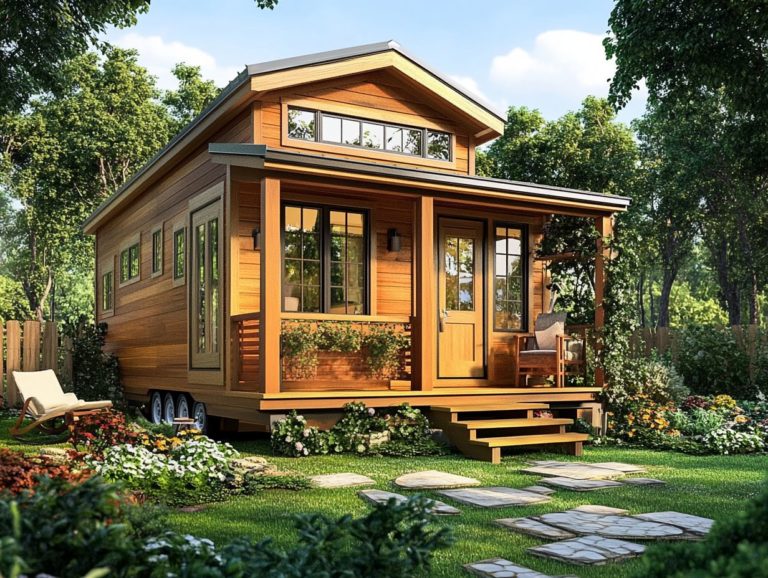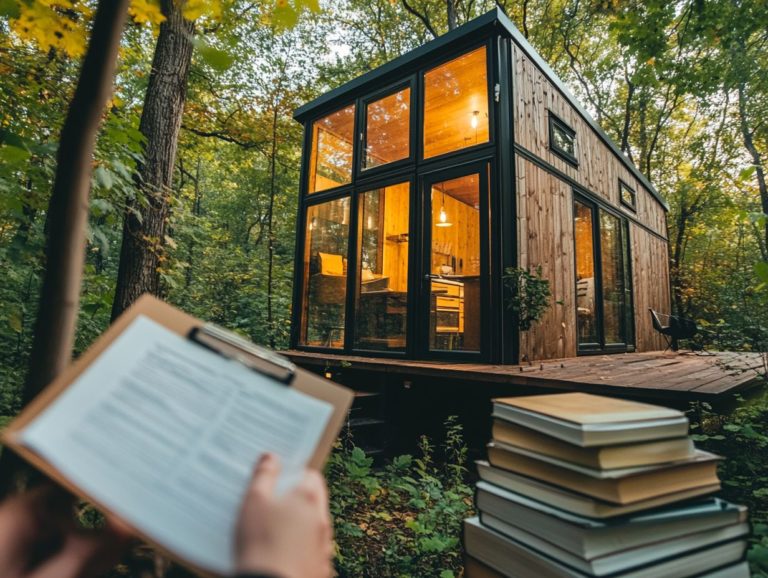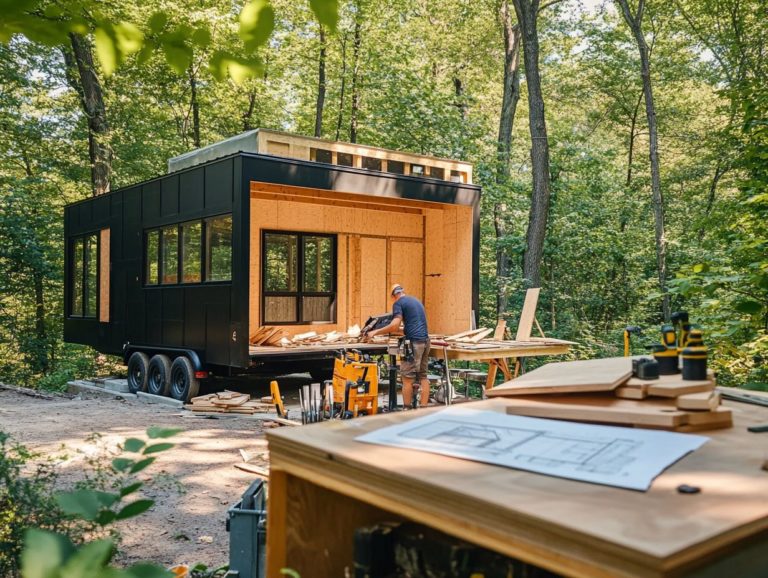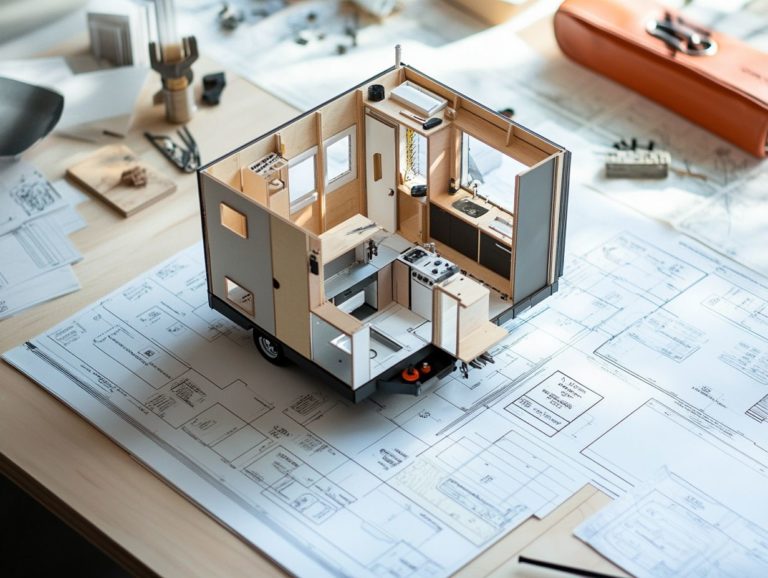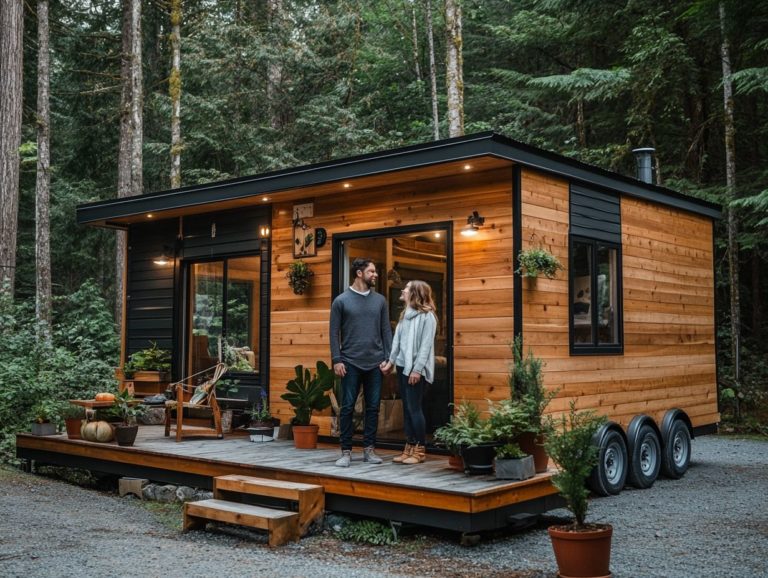Tiny House Legal Assistance: Where to Find Help
Tiny house living presents a distinctive lifestyle choice, but finding your way through legal requirements can feel overwhelming. From zoning laws rules about where you can place your tiny home to building codes standards that ensure homes are safe and livable understanding these rules is essential for anyone contemplating this compact way of life.
This guide will empower you with vital legal insights about tiny house living, detailing where to seek legal assistance, how to effectively collaborate with a lawyer, and the necessary steps to align with local regulations. Whether you re purchasing land or opting to rent, key legal considerations are laid out to assist you.
Immerse yourself in this information to turn your tiny home dreams into a reality, all while sidestepping potential legal headaches!
Contents [hide]
- Key Takeaways:
- Understanding the Legalities of Tiny House Living
- Get the Legal Help You Need!
- Working with a Lawyer for Tiny House Issues
- Navigating Zoning and Building Codes
- Legal Considerations for Buying or Renting Land for a Tiny House
- Frequently Asked Questions
- What is tiny house legal assistance and why might I need it?
- Where can I find help for legal issues related to tiny houses?
- Can I get free legal assistance for my tiny house?
- What types of legal issues can arise with tiny houses?
- How do I know if my tiny house is compliant with local laws and regulations?
- What can I do if I am facing legal challenges with my tiny house?
Key Takeaways:
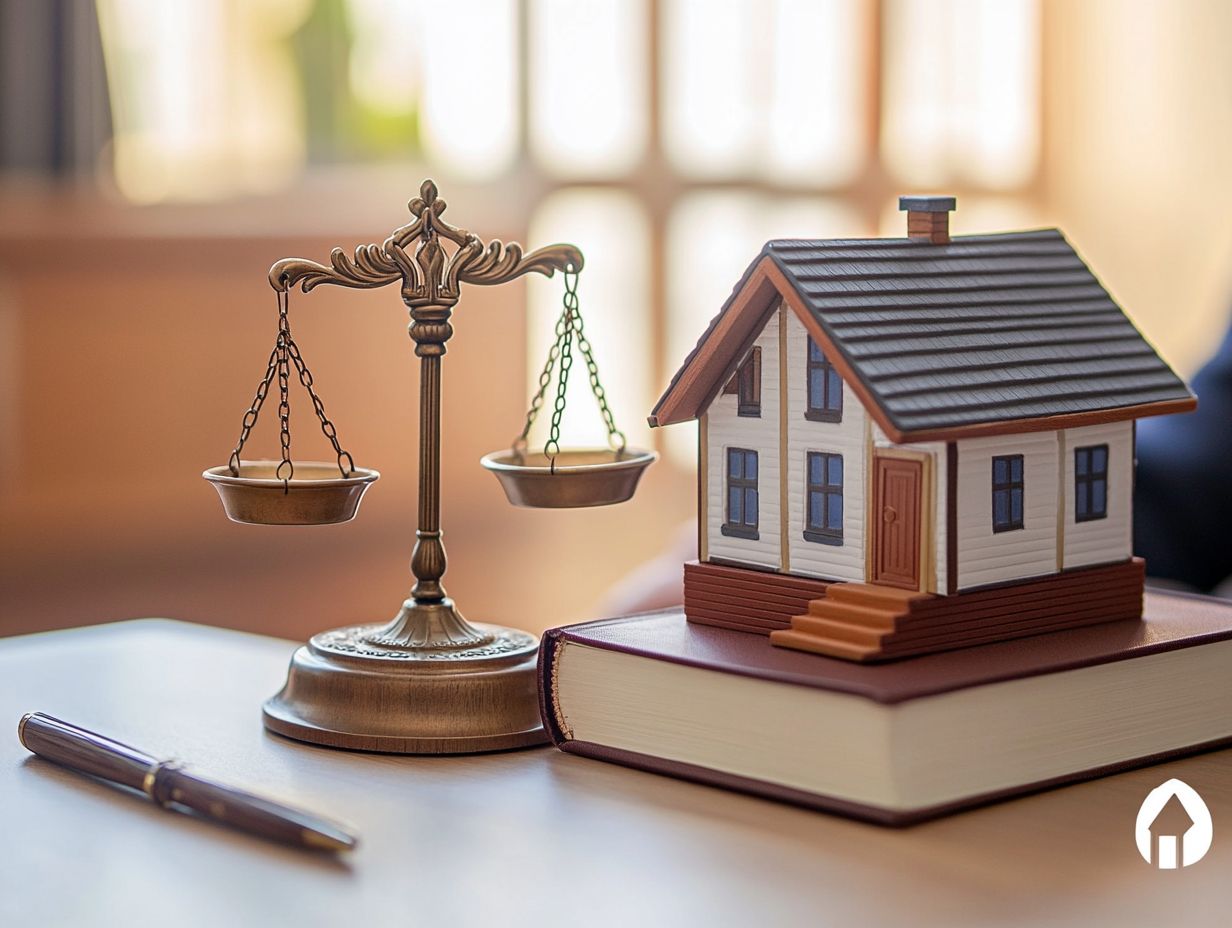
- Know the laws and regulations for tiny house living to avoid legal issues.
- Seek legal assistance from organizations and resources specialized in tiny house laws.
- Working with a lawyer can help navigate zoning, building codes, and legal considerations when buying or renting land for a tiny house.
Understanding the Legalities of Tiny House Living
Understanding the legal intricacies of tiny house living is essential for anyone contemplating this sustainable lifestyle. Tiny homes, frequently regarded as innovative solutions for housing stability, come with their own set of unique challenges and opportunities, especially for low-income homeowners.
Engaging with community initiatives like Save Your Home Philly and Operation Tiny Home empowers you to navigate the complexities of zoning and regulations. Organizations like the American Tiny House Association and the Tiny Home Industry Association (THIA) offer invaluable resources, including insights on tiny house legal challenges, to assist you in building equity and fostering sustainable living through tiny housing solutions.
Laws and Regulations for Tiny Homes
Tiny home regulations in Pennsylvania can vary greatly depending on your location, which significantly impacts how you, as a low-income homeowner, might achieve housing stability through tiny housing solutions and partnerships with tiny home builders.
The state presents a mosaic of municipal codes that determine where tiny homes can be situated, the construction standards they must meet, and the amenities required to ensure both safety and livability. These local stipulations often arise from broader regulations set forth by the RV Industry Association, which establishes standards designed to promote health and safety within the industry. Additionally, it’s important to be aware of tiny house residency laws you should know that may affect your living situation.
Adhering to these codes isn’t just a bureaucratic formality; it’s a vital step in mitigating potential health challenges linked to tiny living, such as inadequate sanitation or unsafe structures. Thus, grasping and navigating these regulations is essential for anyone, including you, looking to establish, reside in, or invest in tiny house communities throughout Pennsylvania, from Lancaster County to York County. Understanding tiny house living and legal liability is crucial in this process.
Get the Legal Help You Need!
When you navigate the intricate landscape of tiny home regulations, seeking legal assistance becomes crucial for achieving housing stability and ensuring compliance with local laws. This step not only safeguards your investment but also empowers you to make informed decisions in a challenging environment.
Organizations and Resources for Legal Help

Numerous organizations offer legal assistance and resources tailored to those involved in the tiny home movement, including Great Lakes Tiny Homes, addressing both the challenges and opportunities that homeowners face.
Among these influential groups are the U.S. Department of Housing and Urban Development (HUD) and the Tiny Home Industry Association (THIA). These entities provide invaluable guidance for navigating the intricacies of zoning laws and building codes that pertain specifically to tiny living, including tiny house licensing.
Community initiatives also play a vital role, creating support networks that help individuals tackle health concerns related to tiny living, such as limited space and accessibility to resources. By leveraging these resources, you can better navigate the complexities of legal requirements and discover solutions that not only enhance your lifestyle but also ensure compliance with local regulations.
Take the first step towards your tiny home journey today!
Working with a Lawyer for Tiny House Issues
Engaging a lawyer or consulting with legal experts to navigate tiny house challenges can greatly simplify your path to building equity while ensuring adherence to regulations.
What to Expect and How to Prepare
Preparing for a consultation with a lawyer about tiny house regulations means gathering all the pertinent legal documents and understanding your rights as a homeowner. This preparation is essential to ensure you can discuss your situation effectively and make the most of your time with the attorney.
Start by compiling any relevant contracts, property deeds, or zoning information related to your tiny home. Familiarizing yourself with local tiny home regulations, along with tiny house legal resources you should know, can save you time and help your attorney provide tailored guidance. Knowing your rights as a homeowner will empower you during the consultation.
Resources from organizations like THIA and other community initiatives offer valuable insights and can assist you in filing the necessary paperwork, ensuring you’re well-prepared to navigate any legal complexities, including understanding the legal status of tiny houses, that may arise.
Navigating Zoning and Building Codes
Navigating zoning and building codes is essential for tiny homeowners who wish to comply with local regulations and champion sustainable living. Understanding these guidelines not only ensures a smooth building process but also reflects a commitment to responsible stewardship of resources.
Understanding and Complying with Regulations

Zoning laws can seem complicated, but understanding them is key to securing stable housing and building your investment.
These regulations can vary widely from one locale to another, dictating where you can place your tiny home, the allowed sizes, and even the types of utilities you can connect. Tiny homeowners often encounter legal hurdles when their homes are deemed non-compliant, leading to fines, removal orders, or, in the worst-case scenario, a loss of investment. Understanding tiny house land use laws is crucial for navigating these challenges.
To navigate these complexities, conduct thorough research on local zoning ordinances and engage with community planning boards. Attending local council meetings can also provide valuable insights into upcoming changes, ensuring your compliance and protecting your investment while enhancing your property’s value.
Legal Considerations for Buying or Renting Land for a Tiny House
When it comes to buying or renting land for a tiny house, legal considerations are paramount. They play a crucial role in creating a secure and sustainable living environment.
Understanding zoning laws, land use regulations, and property rights, particularly in relation to tiny home builders, will empower you to make informed decisions that align with your vision for tiny house living and navigate the tiny house movement and legal challenges.
Contracts, Permits, and Other Legal Documents
Contracts, permits, and other legal documents are vital for securing your land ownership and ensuring compliance with tiny house regulations, which are often influenced by local community initiatives.
These legal agreements cover various aspects, including land leases, building permits, and occupancy agreements. Together, they play a crucial role in defining your rights and responsibilities as a tiny homeowner. It’s also important to be aware of common misconceptions; for more information, check out tiny house living: legal myths debunked.
By establishing clear expectations and guidelines, these documents not only protect you from potential disputes but also foster a harmonious relationship with landowners and neighbors.
To effectively manage these contracts, maintain detailed records, understand local zoning laws, and regularly review the terms to stay updated on any changes. Consulting with legal experts can also provide tailored advice, helping you navigate ownership complexities and safeguard your investment.
Watch the video for more insights on tiny house regulations and legal advice!
Frequently Asked Questions
What is tiny house legal assistance and why might I need it?
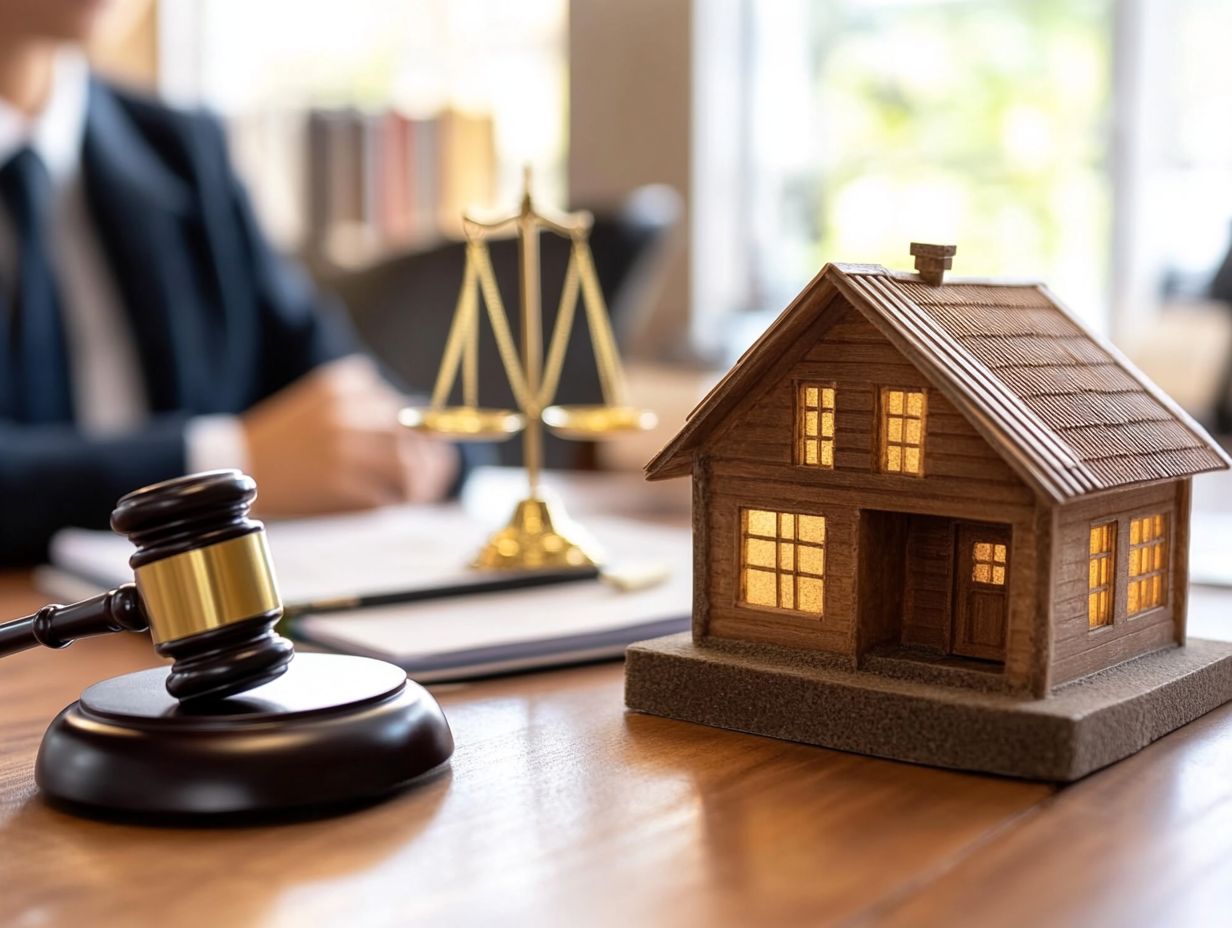
Tiny house legal assistance helps you navigate legal issues. Whether it’s local building rules or property rights, this guidance ensures you build or live in your tiny home legally.
Where can I find help for legal issues related to tiny houses?
To find help, you can hire a lawyer specializing in tiny homes. Nonprofits that support tiny house rights are also excellent resources.
Can I get free legal assistance for my tiny house?
Yes! Many nonprofits provide free or low-cost legal help. Check with your local government for additional resources.
What types of legal issues can arise with tiny houses?
Common issues include zoning violations and property disputes. Knowing these can help you seek assistance when needed.
How do I know if my tiny house is compliant with local laws and regulations?
To ensure compliance, consult with a lawyer or local official. They can help you review your plans and meet required standards.
What can I do if I am facing legal challenges with my tiny house?
Facing legal challenges? Act quickly! A specialized lawyer can help you understand your rights and navigate your situation.

